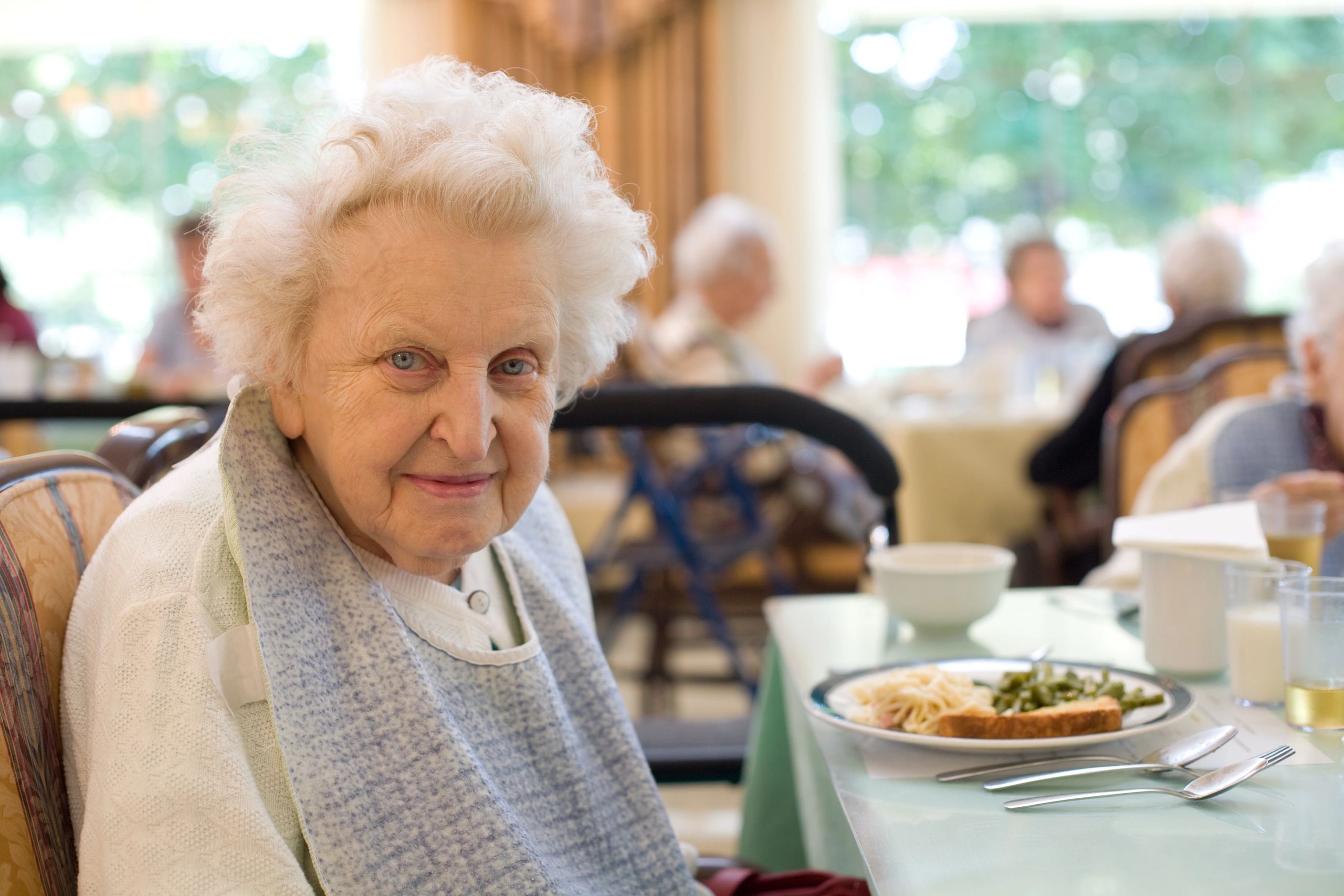Asset Publisher
5 Tips to Help a Loved One Manage Eating Difficulties
06/11/2019

An older adult seated with her plate at a dinner table
As a loved one ages, they may experience changes that impact their appetite; their ability to distinguish taste, smell, temperature and texture of food; and, if they have dementia, they may have difficulty feeding themselves. We can help our loved ones maintain proper nutrition and avoid unwanted weight loss and other negative outcomes by following the tips below. A loved one's physician may also recommend nutrient-rich liquid supplements to help a loved one maintain their health.
1. We can start by making sure the dining area where a loved one eats is appropriate. If a loved one has vision problems, poor lighting can make it difficult to see the food in front them. Having a loved one use plates without distracting patterns and making sure there is adequate color contrast between food and the plate may also lessen the difficulties of these problems.
If a loved one has dementia, eliminating distractions, such as noise from the TV or radio, can often be helpful, since these distractions may keep a loved one from focusing on mealtime. We can also remove unneeded items from the table and make sure there are not too many food choices.
2. If a loved one has difficulty grasping utensils, replacing some foods with finger foods such as small sandwiches, cheese, hard-boiled eggs and fresh fruits and vegetables may make it easier for them to eat independently. If necessary, we can use plates with large rims, cups with lids and wide bases, flexible straws, utensils with large handles and nonslip placemats to keep dishes from moving around on the table.
3. Mood, behavior and physical function can impact eating as dementia progresses. Because of this, it can be important for us to maintain familiar routines. If a loved one has always eaten dinner at the same time, we should honor that. If they have always prayed before meals, they should be encouraged to continue to say a prayer before eating. We should avoid introducing unfamiliar routines as much as possible, such as serving a hearty breakfast if a loved one has had a slice of toast for breakfast their entire adult life. If a loved one is receiving assistance from a home care aide, we should be sure to share these preferences and routines with them.
4. We should make sure our loved ones sit upright while eating to avoid choking. If they have difficulty chewing, food can be minced, shredded or pureed.
5. Dry mouth can make chewing and swallowing difficult, so we should make sure our loved ones stay hydrated by offering water throughout the day. This can also help avoid constipation, confusion and dizziness.
A version of this article appeared in the Private Health News.
Related Assets
Suggested Reads
4 Tips for Getting the Most Out of Mealtime with Dementia
Over time, people develop unique relationships with food – determining what they like and do not like. It is commonplace to have a favorite meal, type of food, place to eat, etc. Individuals living with dementia, however, commonly experience changes from their...
Eating Well with Alzheimer's
Eating well is essential to good health, but when we are caring for an older loved one with a memory disorder, it may be challenging to be sure they have access to well-balanced and appetizing meals. It can be a struggle as well to ensure that they are eating ...
Helping an Older Loved One Maintain Good Oral Health
When caring for an older loved one with a chronic health condition or serious health concern, you most likely take them to regular appointments with doctors or specialists to assure that they are healthy and in the best possible condition. But with all these i...
Why Being Watchful for Signs of Malnutrition in Older Adults Matters
Malnutrition is most simply defined as a nutritional imbalance that can potentially affect any person, regardless of weight. Chronic health conditions combined with inadequate nutrition can often negatively impact older adults and prevent their bodies from abs...
